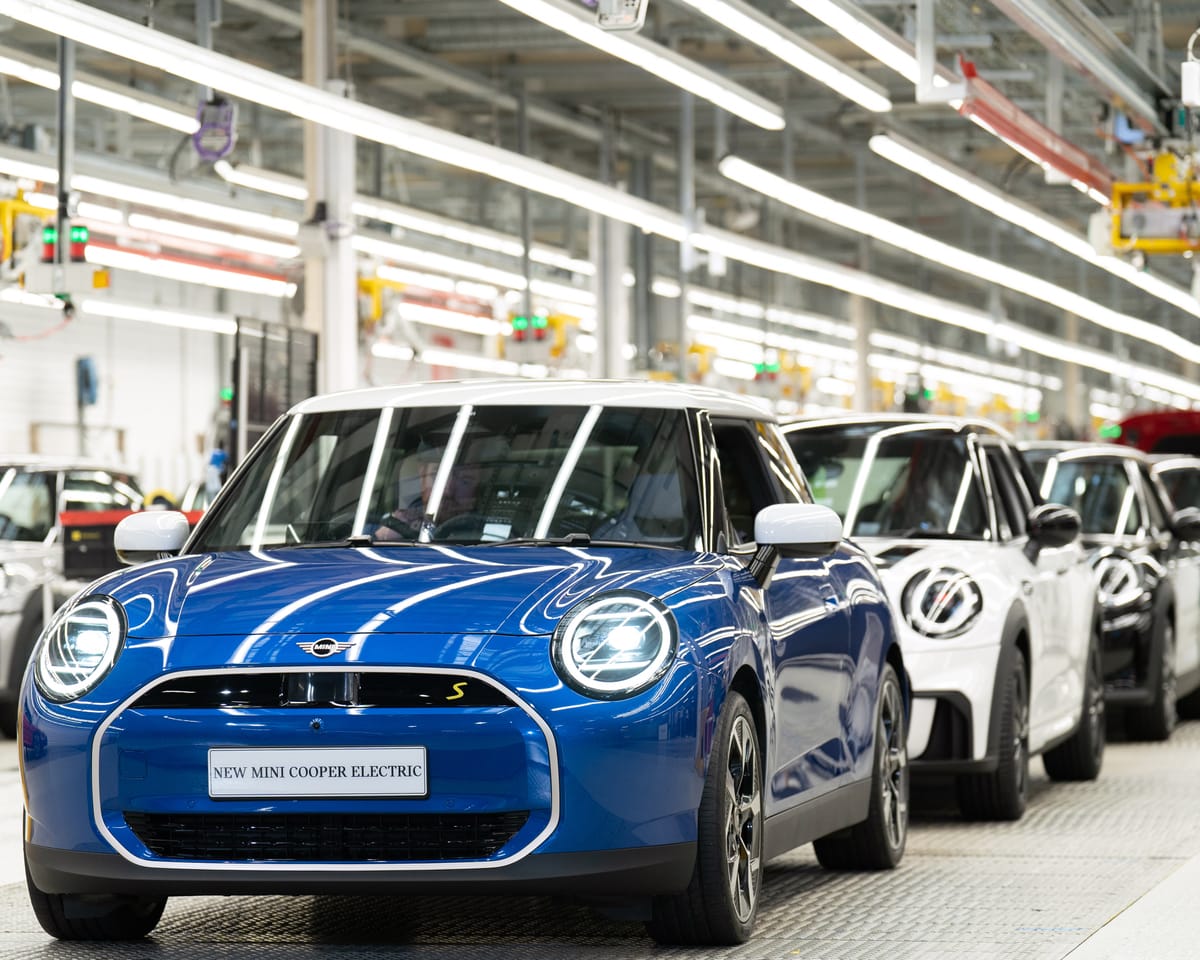British car and van production fell sharply in the first half of the year, reaching its lowest level since 1953 outside the pandemic period, amid disruptions caused by U.S. trade policies.
Data from the Society of Motor Manufacturers and Traders (SMMT) reveals that vehicle manufacturing in the UK dropped by 12% to 417,200 units in the first six months of the year. Only during the pandemic in 2020 did production decline more significantly over the past seven decades.
Mike Hawes, chief executive of the SMMT, described it as "one of the toughest periods for UK automotive" but expressed optimism that the sector had hit its lowest point.
Automakers have faced challenges due to weaker-than-expected sales and the transition from petrol and diesel vehicles to electric models. Additionally, Stellantis decided to shut down its Vauxhall van plant in Luton.
Higher U.S. import taxes threatened exports, particularly impacting luxury brands like Bentley, Rolls-Royce, and Jaguar Land Rover. Shipments were temporarily halted from April in anticipation of reduced tariffs.
A recent agreement between the UK and the U.S. will allow up to 100,000 British vehicles to be exported annually at a lower tax rate. This contributed to a 7% increase in June production compared to the previous year.
While the deal prevents further declines, Hawes noted it doesn’t enable growth beyond current levels without further negotiations.
Some automakers, including Nissan, which plans to produce electric vehicles in Sunderland, may benefit from new government incentives for electric car sales capped at £3,750 per vehicle. However, strict eligibility rules mean many imported models won’t qualify.
Hawes said the subsidies, though welcome after a three-year hiatus, were introduced without industry input, leaving carmakers uncertain about qualifications. This has disrupted sales plans, with buyers delaying purchases until details are finalized.
The policy could also complicate compliance with electric vehicle sales targets for manufacturers excluded from subsidies, Hawes added.
Read next

Ryanair plane had only six minutes of fuel upon Manchester landing, records show
Flight Narrowly Avoids Disaster After Storm Diversion
An inquiry has been launched after a Ryanair flight, struggling against severe winds during storm Amy last week, landed at Manchester Airport with only six minutes’ worth of fuel remaining.
The aircraft had been transporting passengers from Pisa, Italy, to Prestwick, Scotland, on

"Qantas customer data for 5 million exposed as hackers release info post-ransom deadline"
Hackers Leak Personal Data of 5 Million Qantas Customers on Dark Web
A cybercriminal group has released personal records of 5 million Qantas customers on the dark web after the airline did not meet their ransom demand.
The breach is part of a larger global incident affecting over 40 companies,

Investors flee record-high UK stocks as EU set to hike steel tariffs
Investors Withdraw Record Sums from Equity Funds Amid High Market Valuations
Data reveals that investors in the UK have withdrawn an unprecedented amount of money from equity funds over the past three months, driven by concerns over soaring stock market valuations.
According to the latest figures from Calastone, the largest

